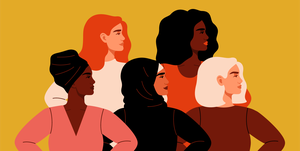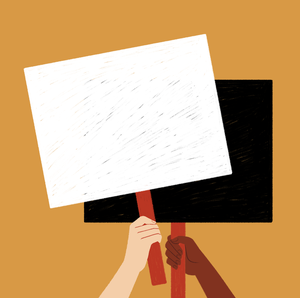The Global Fight for Black Lives
America didn't invent racism, but we do have a particularly egregious system of it woven into our country's DNA. Repeated instances of flagrant injustice within our borders have galvanized a new civil rights movement here—and around the world. These are just some of the women leading the fight in their part of the globe.
The Black Lives Matter protests that swept across America after the police killing of George Floyd in Minneapolis on May 25, 2020, were the largest in the country’s long history of mass movements for civil rights and racial justice. At least 15 million Americans demonstrated in 2,500 towns and cities, setting off a tidal wave of support. Hundreds of thousands of people in London, Sydney, Cape Town, Rio de Janeiro, Stockholm, Tokyo, and many other communities took to the streets in solidarity. Captured on video, the raw power of Floyd’s horrifying death brought to the surface local issues of racial violence and inequality, inspiring people to rise up against what was happening in their home countries too.
Racial and gender inequality often negatively reinforce each other, which makes being both Black and female a double hurdle in nearly every nation. The Black Lives Matter movement was founded by three Black women—Alicia Garza, Patrisse Cullors, and Opal Tometi—in 2013, after George Zimmerman was acquitted of murdering Florida teen Trayvon Martin. What began as an online campaign with the spontaneous hashtag #BlackLivesMatter is now an unstoppable international phenomenon, with women as a major driving force. As Garza, also a Marie Claire contributing editor, notes in her new book, The Purpose of Power: “Hashtags do not start movements—people do.”
Here, meet eight extraordinary women from around the world who have transformed their personal experiences into activism and empowerment in their nations—and who are determined to keep fighting for racial justice on a global scale.
Over the past four years, 35-year-old Assa Traoré has turned her quest to achieve justice for her brother Adama’s death into a passionate high-profile campaign to end racial discrimination throughout the country and beyond. Her image has become so recognizable that French R&B artist Mallaury wrote a song titled “Assa.” “I wish I had the courage of Assa,” go the lyrics. “Head high, arms raised, you lead the fight.”
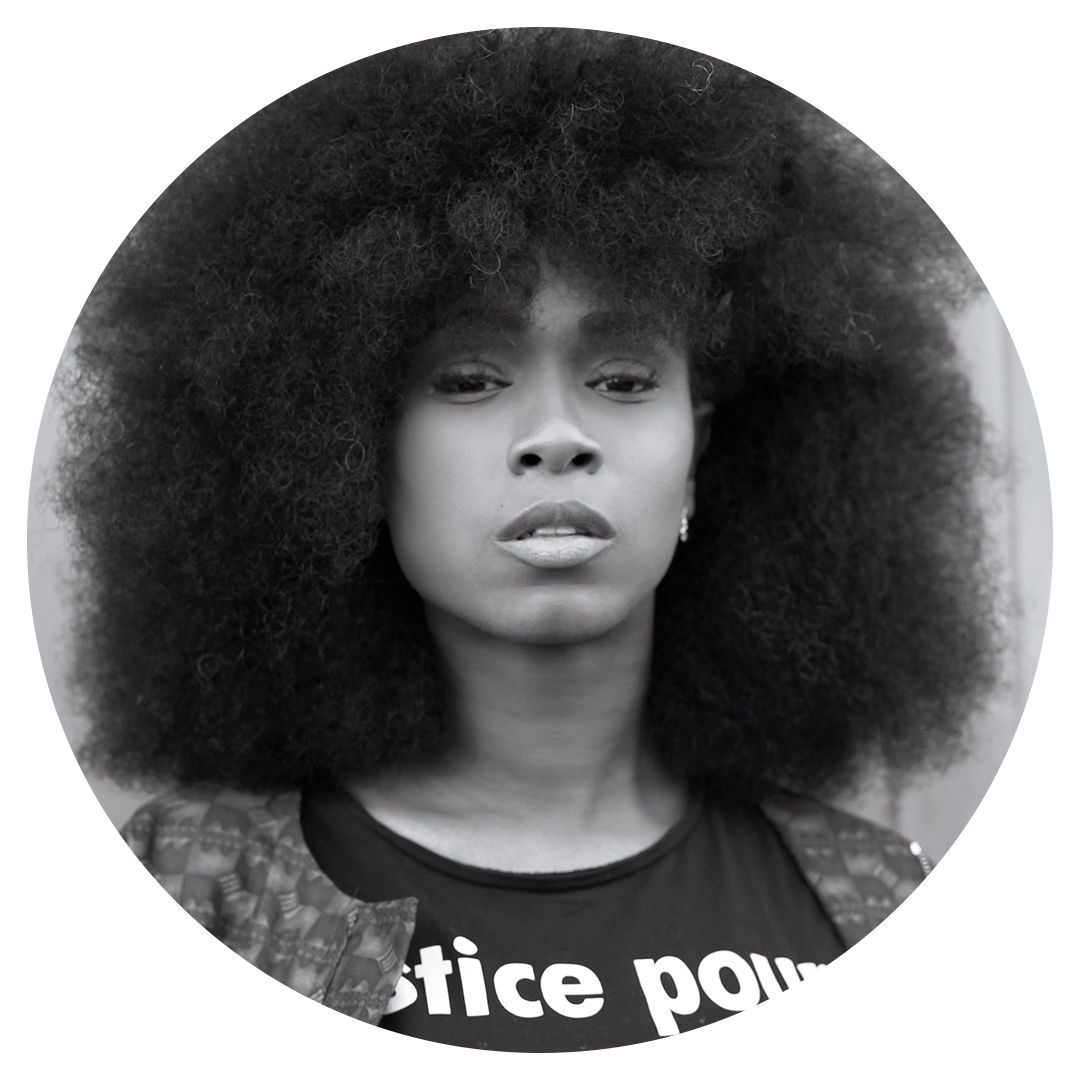
Traoré is quick to say the struggle is not about her: “My brother Adama is not here, so I have to be his voice and the voice of resistance to the police violence that killed him.” In July 2016, Adama ran off when Parisian police randomly stopped him and one of his brothers in the street and asked to see their IDs. Adama didn’t have his with him at the time. “It was his 24th birthday, and he had gone out to celebrate,” Traoré says, speaking on WhatsApp from her apartment in southern Paris. Of Malian descent, the Traoré family knew all about racial profiling. According to the Defender of Rights, France’s national human-rights group, Black and Arab men are subjected to identity-card spot checks 20 times more often than white men are.
“Three gendarmes chased Adama and pinned him down with the full force of their bodies, a combined weight of 250 kilos [551 pounds],” says Traoré, who was out of the country when it happened. Adama died about two hours later in a police compound. The coroner ruled that the cause of death was an infection, and the three policemen were not charged.
Traoré quit her job as a special-education teacher to launch the Truth for Adama Committee. Certain that Adama was asphyxiated, she ordered an independent autopsy, which confirmed her belief. “My blood froze when I heard George Floyd saying, ‘I can’t breathe,’ because it was like hearing my own brother,” she says. “Witnesses said he used the exact same phrase.”
Get exclusive access to fashion and beauty trends, hot-off-the-press celebrity news, and more.
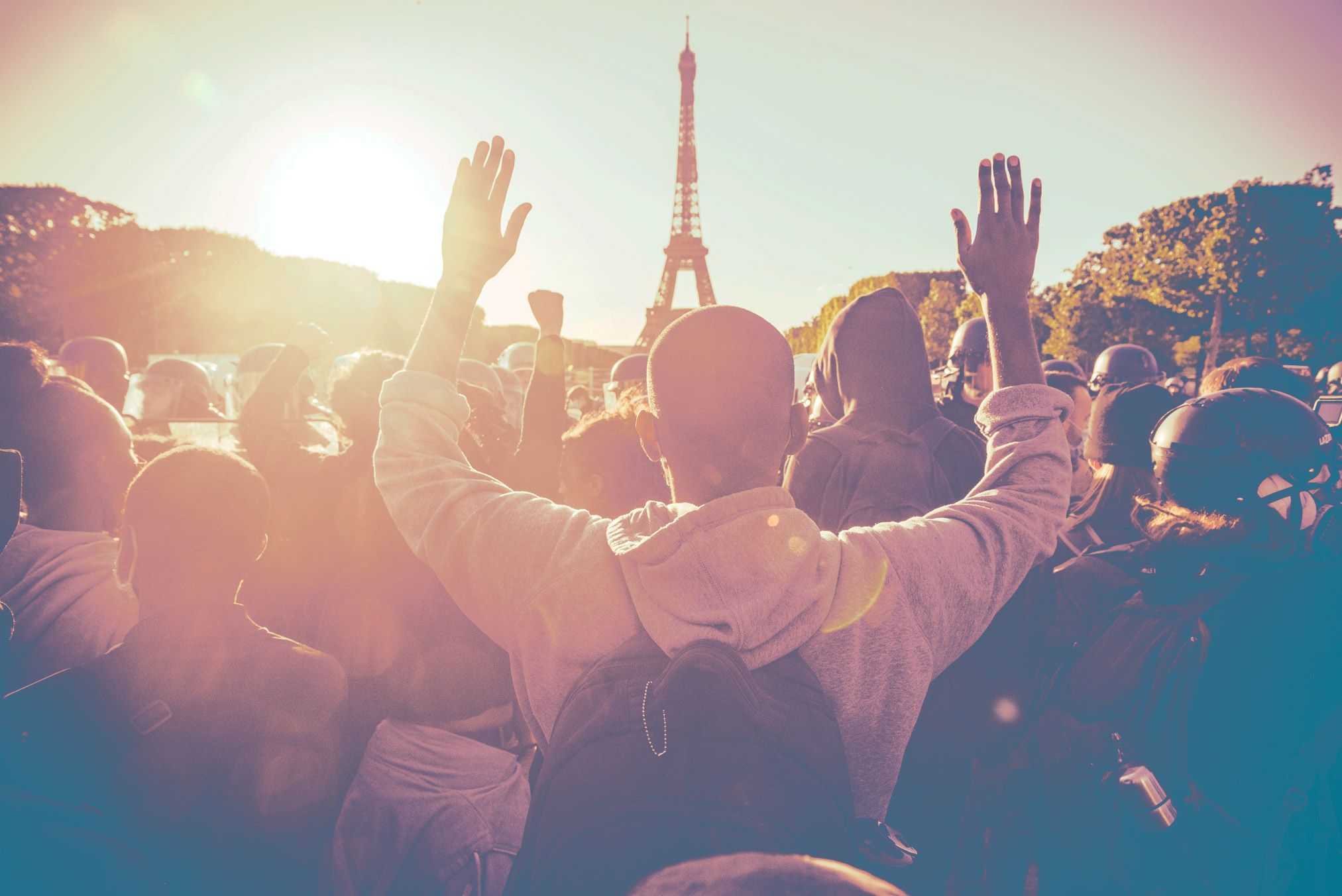
A demonstrator raises his hands at a June 6, 2020, rally against racism and police violence near the Eiffel Tower in Paris.
While battling a legal maze for Adama, Traoré and her team of about 15 friends and relatives have also traveled around France visiting poor Black communities. “It’s crucial to involve people at a grassroots level, to let them know they have a legitimate right to live without racism or brutality,” she says. Her lobbying of the authorities has made progress too. In June 2020, the interior ministry announced plans to phase out choke holds as a
police restraint technique. (Less than a week later, the government backed away from a complete ban, saying it would no longer teach the technique.) In July 2020, following the previous month’s 20,000-strong BLM demonstration in Paris co-organized by Traoré, the three judges investigating Adama’s death announced they were re-examining key pieces of evidence.
Her efforts have won Traoré admiration at home and earned her a Global Good Award at this year’s BET awards in the U.S. “People stop me in the street to thank me for fighting for a better society,” she says. The French media has also started calling the Black youth speaking out for change “Generation Adama,” which comforts her. “I can’t bring my brother back to life, but I’m happy that his name is going to go down in history,” she says. “It means we are winning.” The name Assa Traoré is sure to go down in history too.
In June, as Black Lives Matter protests proliferated, Khady Gueye decided to organize a show of solidarity in Lydney, her hometown in rural southwest England. Gueye, a 25-year-old college student, together with her best friend, obtained permission from the local council. “We were planning a small, peaceful demonstration in the park,” says Gueye, who is mixed-race Senegalese-British. “I didn’t think anyone would object.”
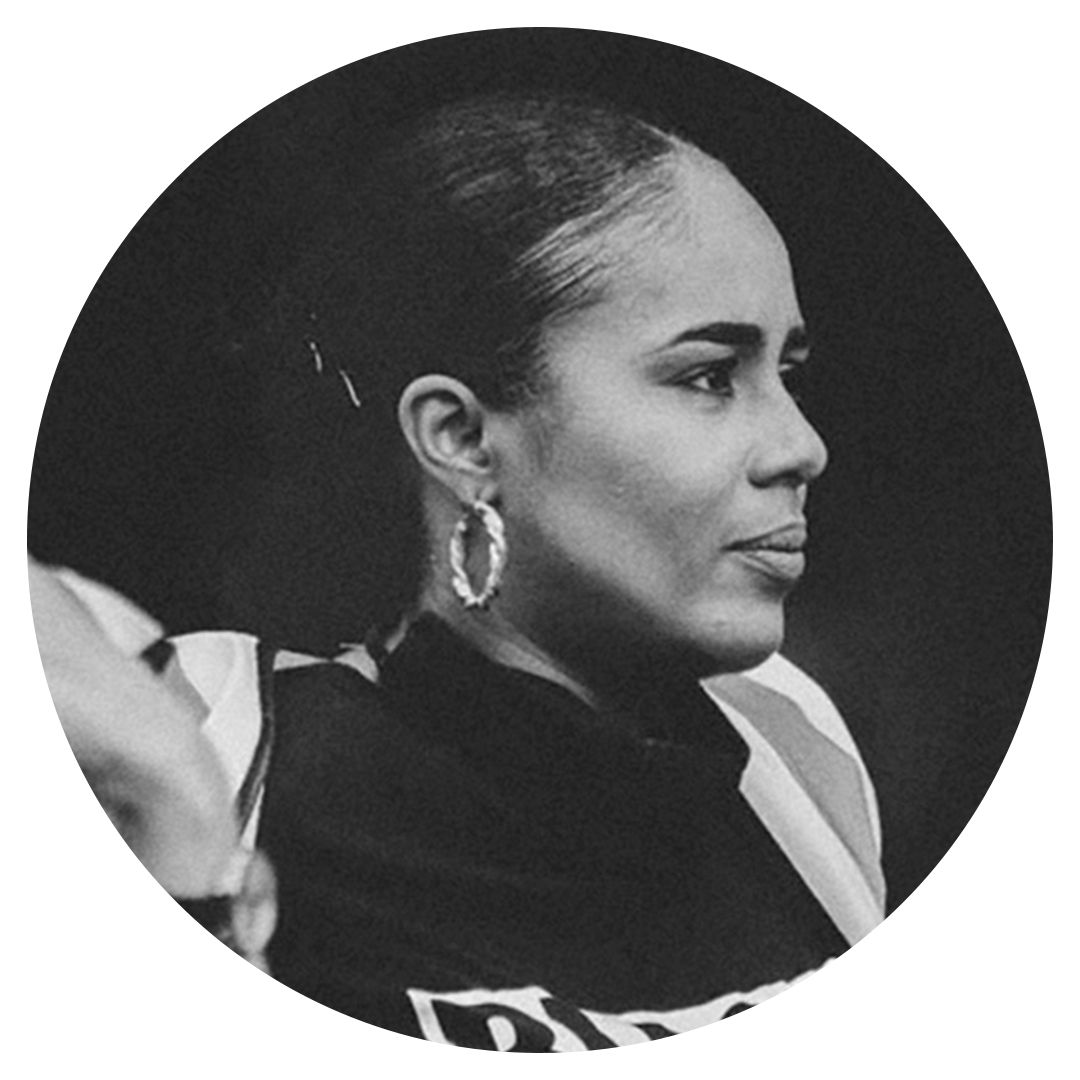
Some in the idyllic country town had other ideas. A local woman started an online petition to cancel the protest due to the coronavirus, collecting 800 signatures—almost 10 percent of Lydney’s population. “At first, people said we should postpone because of the COVID-19 pandemic,” says Gueye. “But as soon as we stressed that we had proper safety measures in place and planned to go ahead, we received a barrage of racist hate speech from commenters.”
Such abuse, which included insults about “moaning Black people” and threats to find out where Gueye lived, confirmed exactly why a BLM rally was needed. In the Forest of Dean in Gloucestershire, the district where Lydney is located, Black and ethnic minorities make up just 1.5 percent of the population. Like many parts of rural England, the area voted in favor of Brexit in 2016; anti-immigration sentiment runs high.
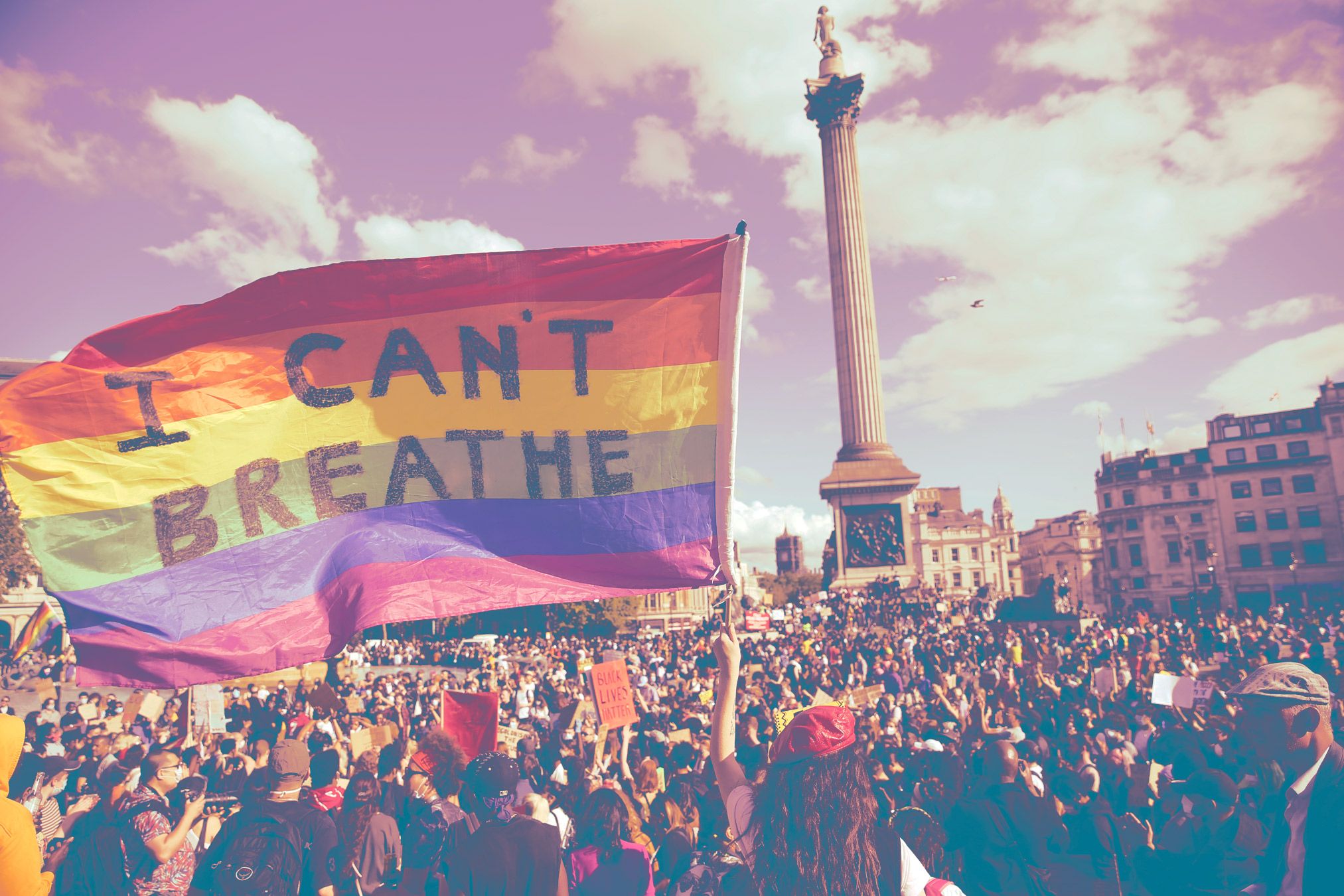
Protesters in London’s Trafalgar Square on June 20, 2020, wave signs alluding to the death of George Floyd in the U.S.
The area’s lack of diversity meant there was little understanding of the BLM movement among those objecting to her event. “They mostly assumed it was anti-white,” says Gueye. The town made headlines when Lydney Council withdrew permission for the protest, citing “significant [public] anxiety” and using the phrase “All Lives Matter” to justify its decision. Social media exploded at the use of a slogan more closely associated with white supremacists. The council flip-flopped again, apologizing for its “insensitive” language and allowing the protest to take place in late June.
“It was a big success,” says Gueye. “Instead of 50 people, as we had originally expected, around 500 people came out. The positive atmosphere was amazing.” Nevertheless, the whole experience made her realize how much more needs to be done. In July, Gueye cofounded the Local Equality Commission, a community project aimed at addressing racial inequality in rural areas. “We hope to run youth workshops and visit schools to raise awareness and to celebrate Black and ethnic minority culture through art and music,” she says.
It’s a lot to take on, but Gueye says being a new mother has been a big driving force. “I’m determined that my one-year-old daughter, Ayla, won’t grow up feeling isolated like I did,” she says. “She must be proud of who she is.”
On a rainy afternoon in mid-June, Japanese-Nigerian DJ Katimi Ai (the name she uses professionally), 29, marched through central Tokyo with 3,500 other demonstrators to protest the killing of George Floyd. She carried a sign in English that read, “No Justice. No Peace. Enough Is Enough.” Japan’s capital is 6,000 miles away from Minneapolis, but the issues raised by the U.S. BLM rallies felt close to home. “The typical attitude in Japan is that discrimination and racial conflict are mostly American problems,” she says. “But I know firsthand that they exist here too.”
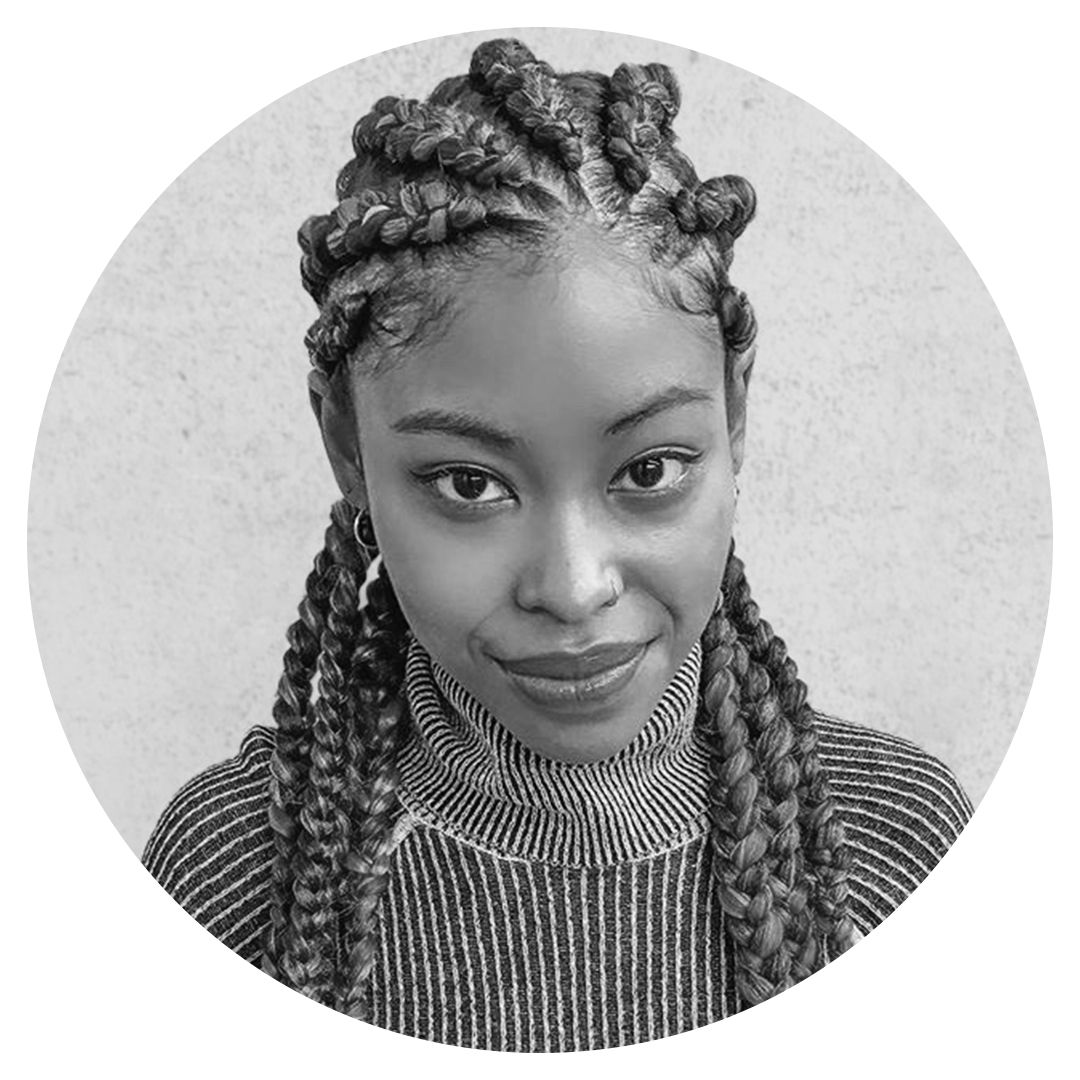
Ai’s Nigerian father left Japan when she was a baby, and her Japanese mother raised her in Tokyo. “My upbringing was 100 percent Japanese, yet I was bullied at school for my dark skin color,” she says. Africa was portrayed in a geography class, she says, as a primitive continent full of people in loincloths. Today she faces racist slights constantly. “Some people won’t sit next to me on the subway, and waiters are always handing me an English menu,” she says. In addition to campaigning on social media, Ai uses her DJ platform to raise awareness about Black artists and culture. “Music is such a powerful way of connecting people,” she says.
Japan has been an insular nation for much of its history, and suspicion toward “outsiders” runs deep. While police killings are rare, in June 2019, a Nigerian man in a detention center in Nagasaki went on a hunger strike. The facility did not force-feed him and he died. In May of this year, Tokyo police were caught on video forcing a Kurdish man to the ground during a traffic stop.
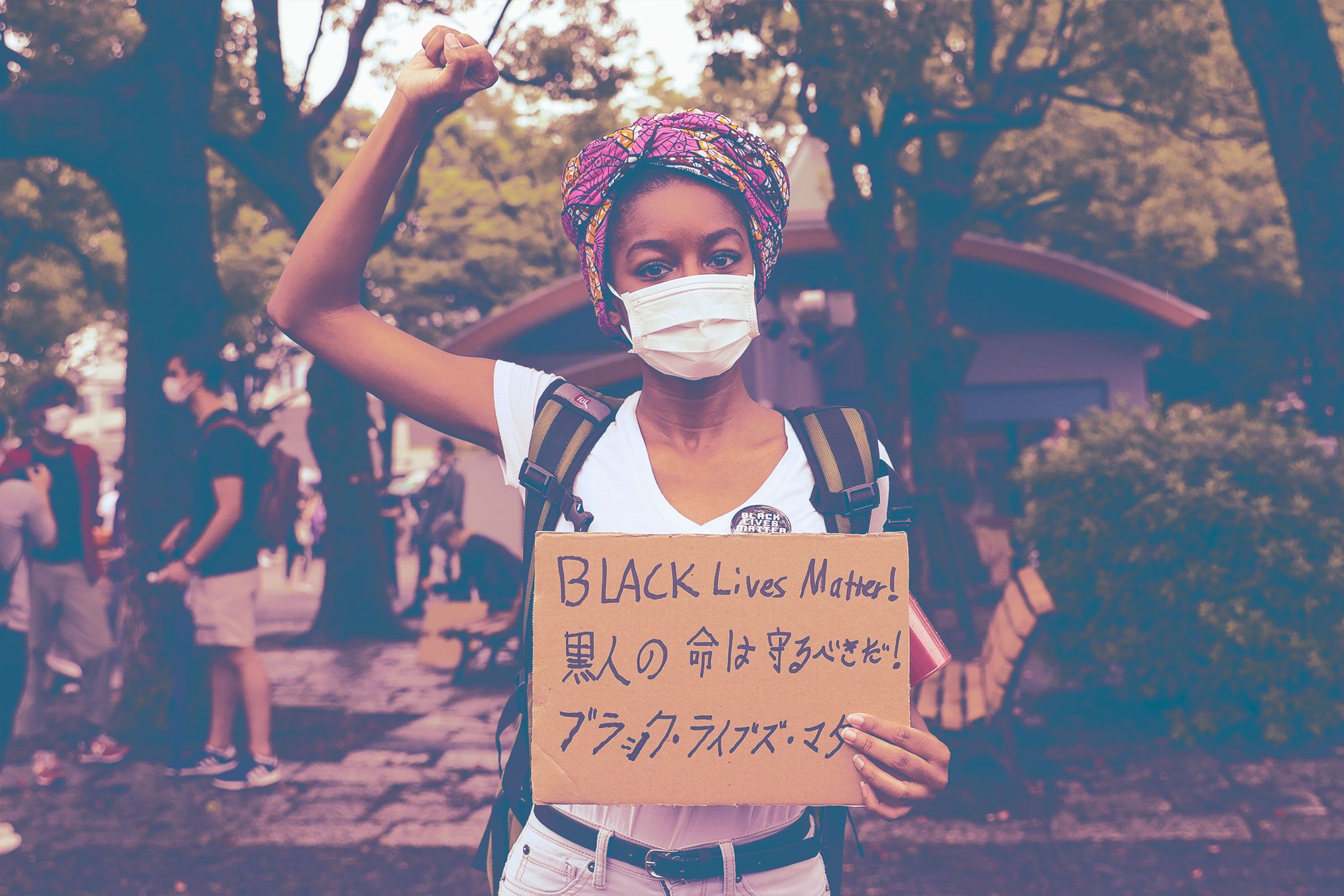
A protester in Tokyo at a peaceful march on June 14, 2020, calling for the eradication of racism around the world.
“One of the stereotypes of Black or brown people in Japan is that we are more likely to commit a crime,” says Ai. Mixed-race people like her are known as “hafu”—literally “half”—and are not considered “proper Japanese” by some. Haitian-Japanese tennis superstar Naomi Osaka has faced her share of racism. Last year, instant noodle maker Nissin, one of Osaka’s sponsors, had to apologize for portraying her with lightened skin and straightened hair in an animé cartoon.
Ai says Osaka, a passionate BLM supporter (at the U.S. Open, she wore masks bearing names of victims of injustice), is an “amazing inspiration,” especially for young Japanese. “She won’t tolerate racism inside or outside Japan.” For now, BLM events in Japan are confined to online streaming, but Ai hopes that the movement is gaining a firm foothold. “We won’t remain silent anymore,” she says. “Like my sign said, enough is enough.”
Until recently, Ariam Tekle found it hard to talk to her white friends about race. “Whenever the subject of discrimination in Italy came up, the first reaction of my friends was to say they were not racist,” says the 32-year-old documentary filmmaker. “I had to explain that I was talking about the system, not about individuals, but they still seemed offended,” she says. Italians living in modern multicultural cities such as Milan like to see themselves as colorblind, despite the fact that Black Italians lag behind whites in areas such as job opportunities and higher education, she adds.
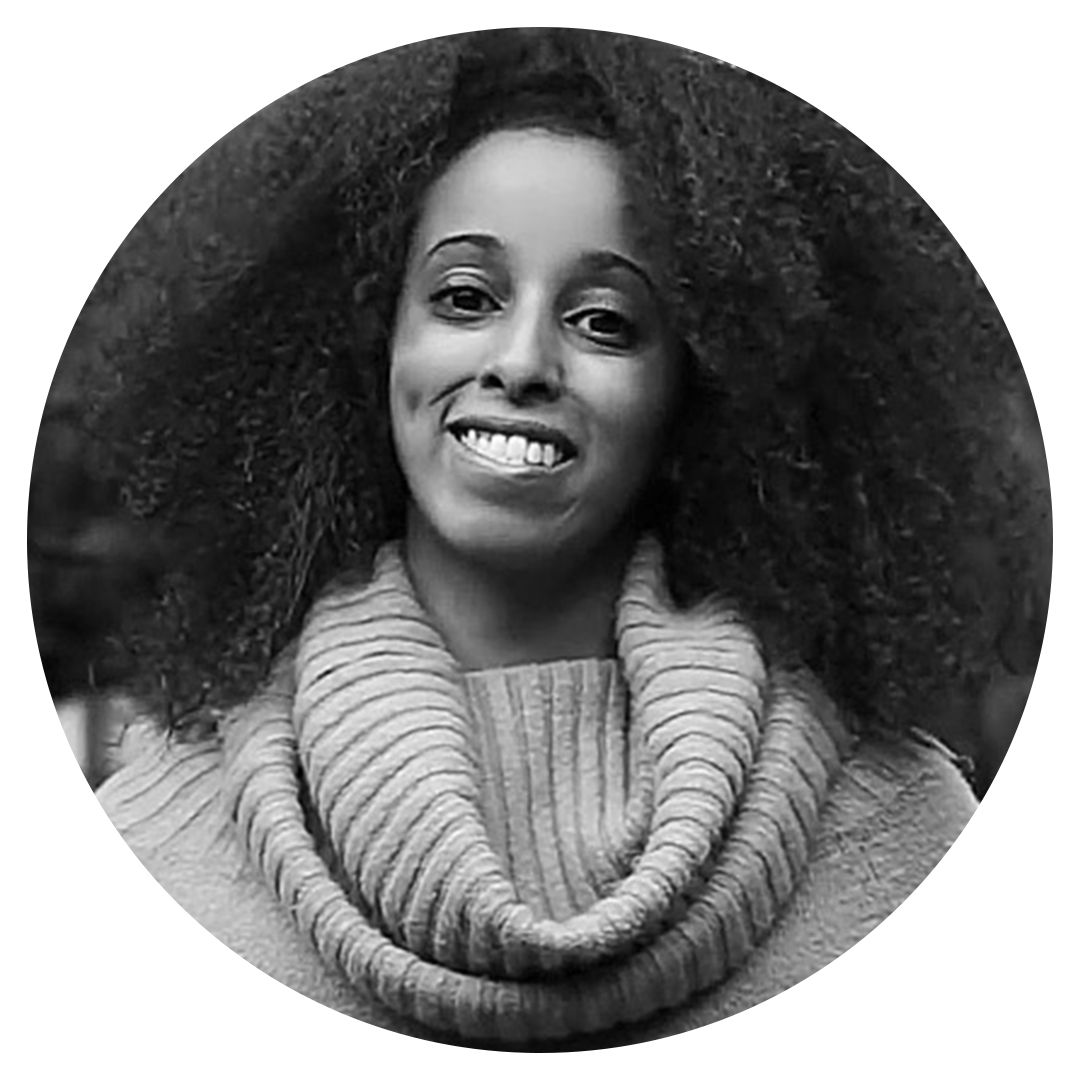
In May, Tekle and a friend launched a podcast called Black Coffee, a discussion on Black identities and daily life as second-generation African-Italians. “It was so liberating to chat with my Black cohost about the issues in an unfiltered way,” she says. After Floyd’s killing later that month, Tekle saw her podcast’s audience numbers climbing. “The Black Lives Matter protests in Italy took place in solidarity with America, but they also opened up people’s minds more to debates about racism here.”
Tekle’s parents came to Italy in the 1970s from Eritrea, a former Italian colony. Almost one million Africans died during Italian colonial rule, many during the reign of fascist dictator Benito Mussolini, who used chemical weapons to conquer territory in the 1930s. Tekle, born in Milan in 1988, says she learned nothing about these atrocities at school. “Italy has a real problem facing up to its colonial past, which means that many people don’t fully understand the origins of racism in the present.”
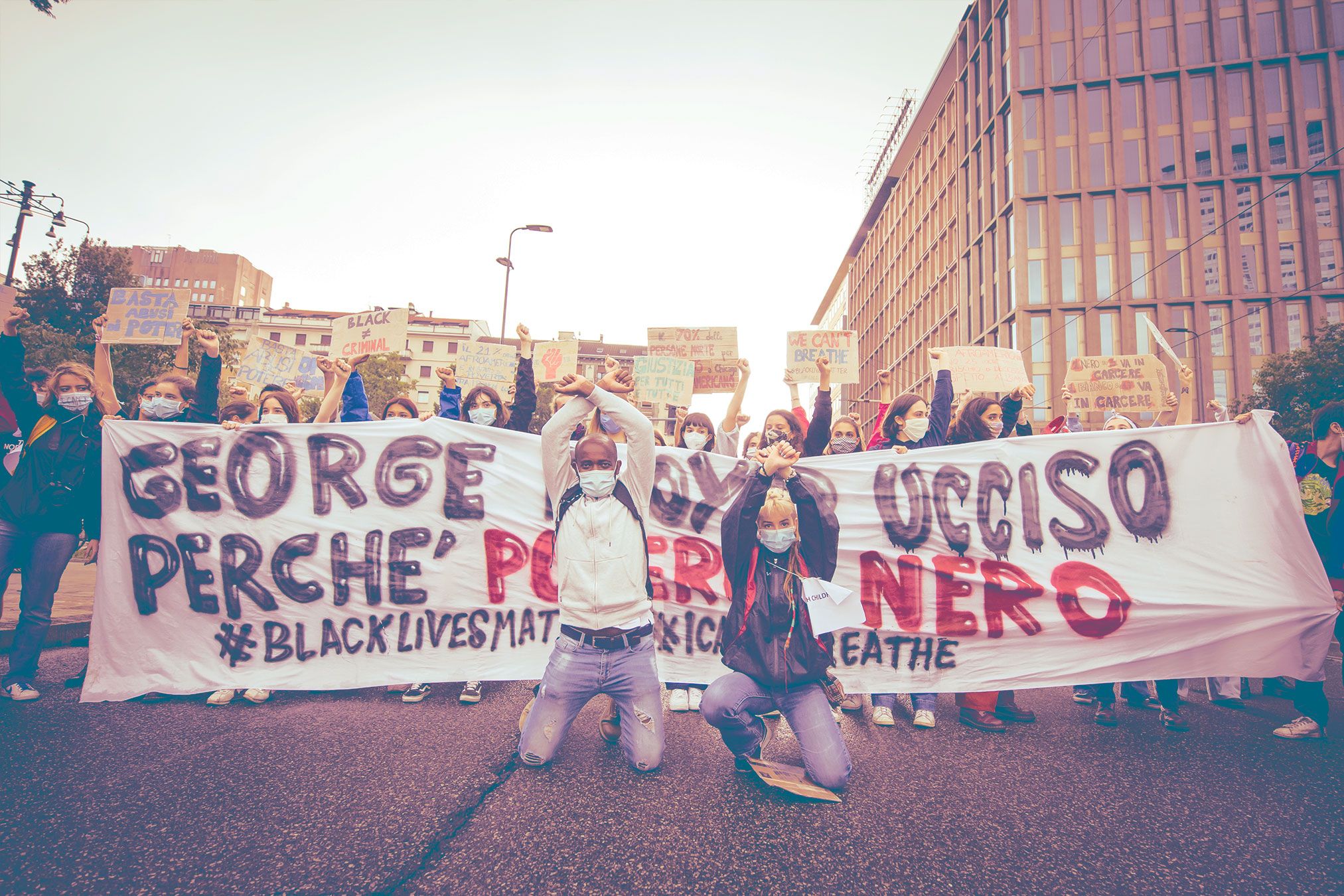
In solidarity with U.S. protests against police brutality, demonstrators gathered at Piazza Duca D'Aosta in Milan, Italy, on June 7, 2020.
In recent months, Tekle and other activists in Milan have pushed for the removal of a statue of journalist Indro Montanelli, who married a 12-year-old Eritrean girl when he was a colonial soldier in the ’30s. Montanelli openly dismissed charges of pedophilia, writing in a newspaper column that African girls were “different” from European girls.
Such stereotypes persist. “On Italian TV, sex workers and drug dealers are nearly always Black,” says Tekle. “Many of my Black female friends have been stopped in the street and asked, ‘How much?’ ” Tekle believes that support for Black Lives Matter is not a passing trend. “We have always had [our own] language to talk about systemic racism,” she says. “The difference is that the world is finally listening.”
“The issue of Black identity is tricky for many Black Brazilians,” says feminist philosopher and author Djamila Ribeiro, 40, one of the country’s most powerful advocates for Black rights. “Most of us are descended from African slaves, but we have no idea which countries our ancestors came from because former white slave traders destroyed all the records.” To help keep their children connected to their roots at least partly, Ribeiro says, her parents gave them all African first names; Djamila is a North African Arabic name meaning “radiant beauty.”
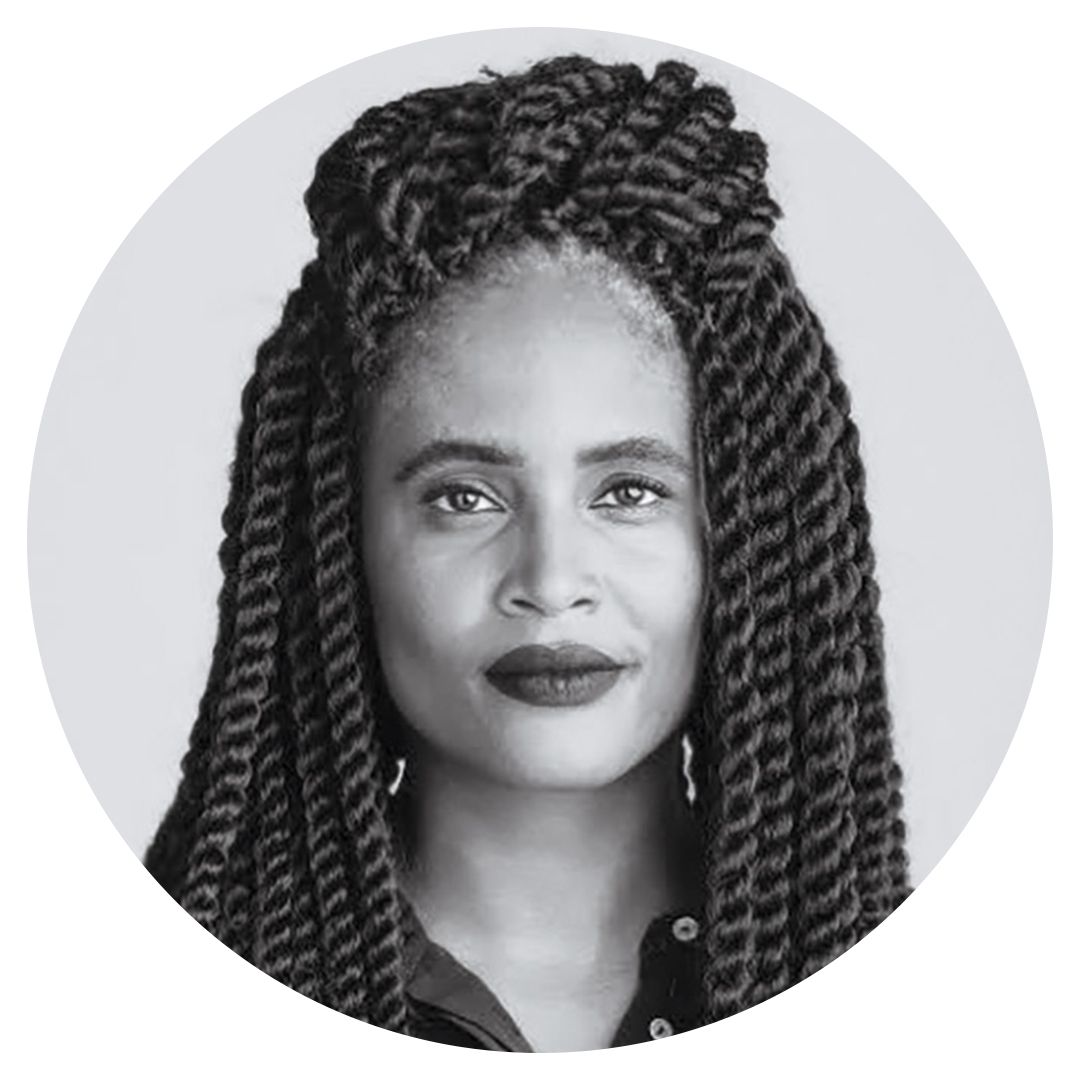
“Black consciousness started from birth,” she says. “My parents taught me that it’s important to know our history to understand the present. Brazil was the last country in the Americas to end slavery, in 1888, and we are still fighting its legacy today.” An estimated 4.7 million Africans were brought to Brazil as slaves starting around 1560. Today, 56 percent of Brazil’s 210 million people are Black or Black/mixed race.
“During and after slavery, there was a lot of intermingling of Black and white, leading to the myth that Brazil had created a kind of racial democracy where everyone was equal,” says Ribeiro. “In fact, the economic and political elites are still overwhelmingly white.” Black people earn on average 74 percent less than whites, according to a 2019 study by the Brazilian Institute of Geography and Statistics. They hold only 6.4 percent of the country’s corporate management positions. As Black Lives Matter protests across Brazil highlighted earlier this year, a young Black man under the age of 29 is killed every 23 minutes as a result of gang and police violence—a rate three times higher than that for white youths.
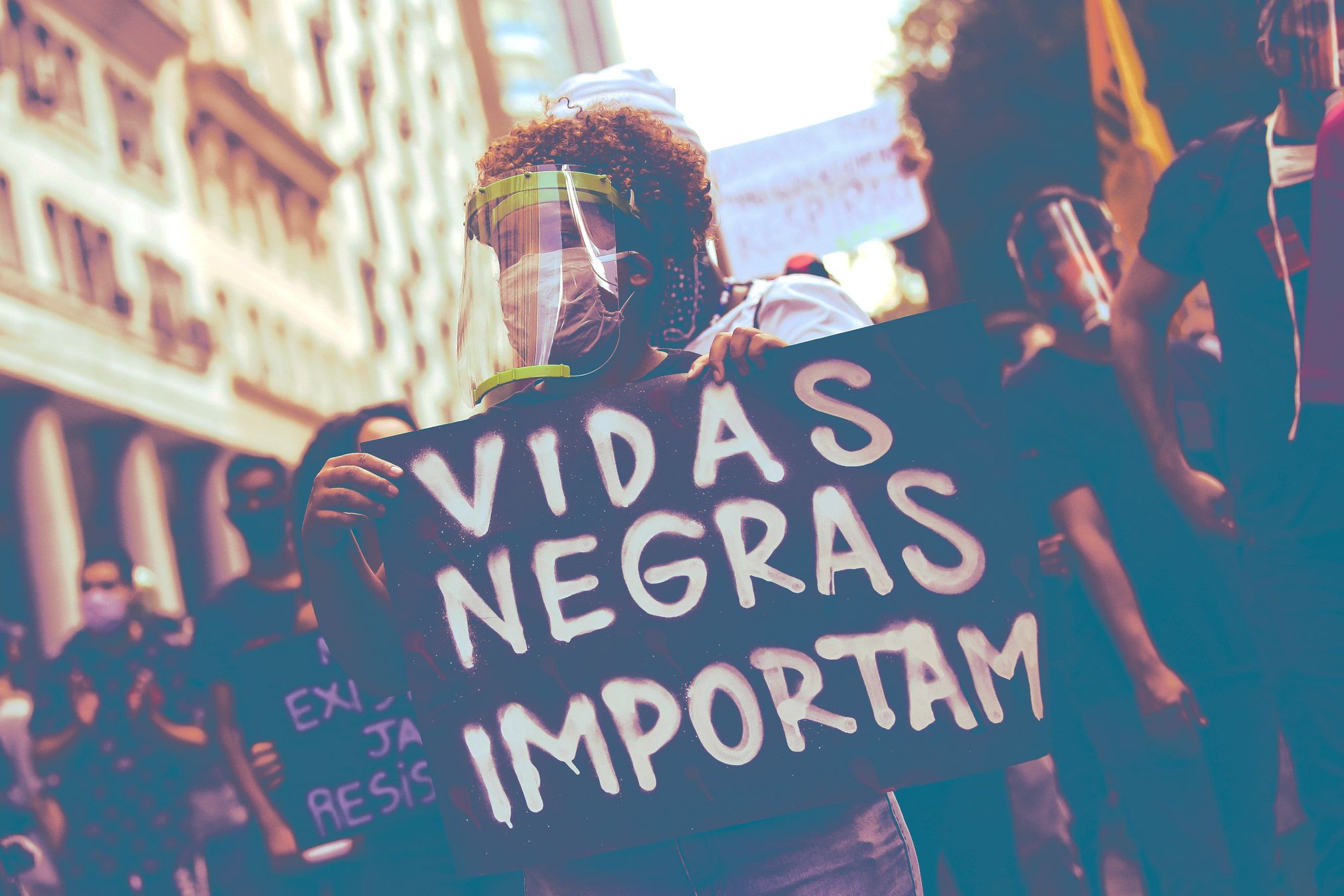
A protester holds a sign reading “Black Lives Matter” in Portuguese at a June 7, 2020, antiracism demonstration in Rio de Janeiro.
The situation is compounded for Black women, who face acute racism as well as sexism in Brazil’s macho society, says Ribeiro. Black women are victims of high levels of domestic abuse and a lack of reproductive rights. Abortion is banned except in cases of rape, when necessary to save a woman’s life, or when the fetus suffers from anencephaly, and unsafe illegal abortions are a leading cause of death among Brazilian women under the age of 40.
Ribeiro confronts these issues daily. She has published numerous books, including a collection of essays on women’s rights, Who’s Afraid of Black Feminism?, and A Short Anti-Racist Handbook, which was a best-seller last year. Ribeiro finds that fact especially gratifying in the “current challenging political environment” under far-right president Jair Bolsonaro. Last April, a senior member of Bolsonaro’s cabinet was caught on tape describing the nation’s Black-rights movement as “bloody scum” and calling Brazil’s Black Consciousness Day “a joke.” Ribeiro is not fazed. “We are going to show that the joke is on them,” she says.
Banchi Yimer, 32, escaped her grueling life as a domestic worker in Lebanon almost three years ago. Born in Ethiopia, she went to the Middle East in 2011 at the age of 23 with the promise of a well-paid job. Instead, she worked for seven years in conditions of modern-day slavery. “I was told I would earn at least [the equivalent of] $250 [U.S.] per month and get one day off a week,” she says. “[Instead] I was forced to work seven days a week and paid only $150 per month. I had to sleep on an outdoor balcony. I was not even allowed to have a phone.”
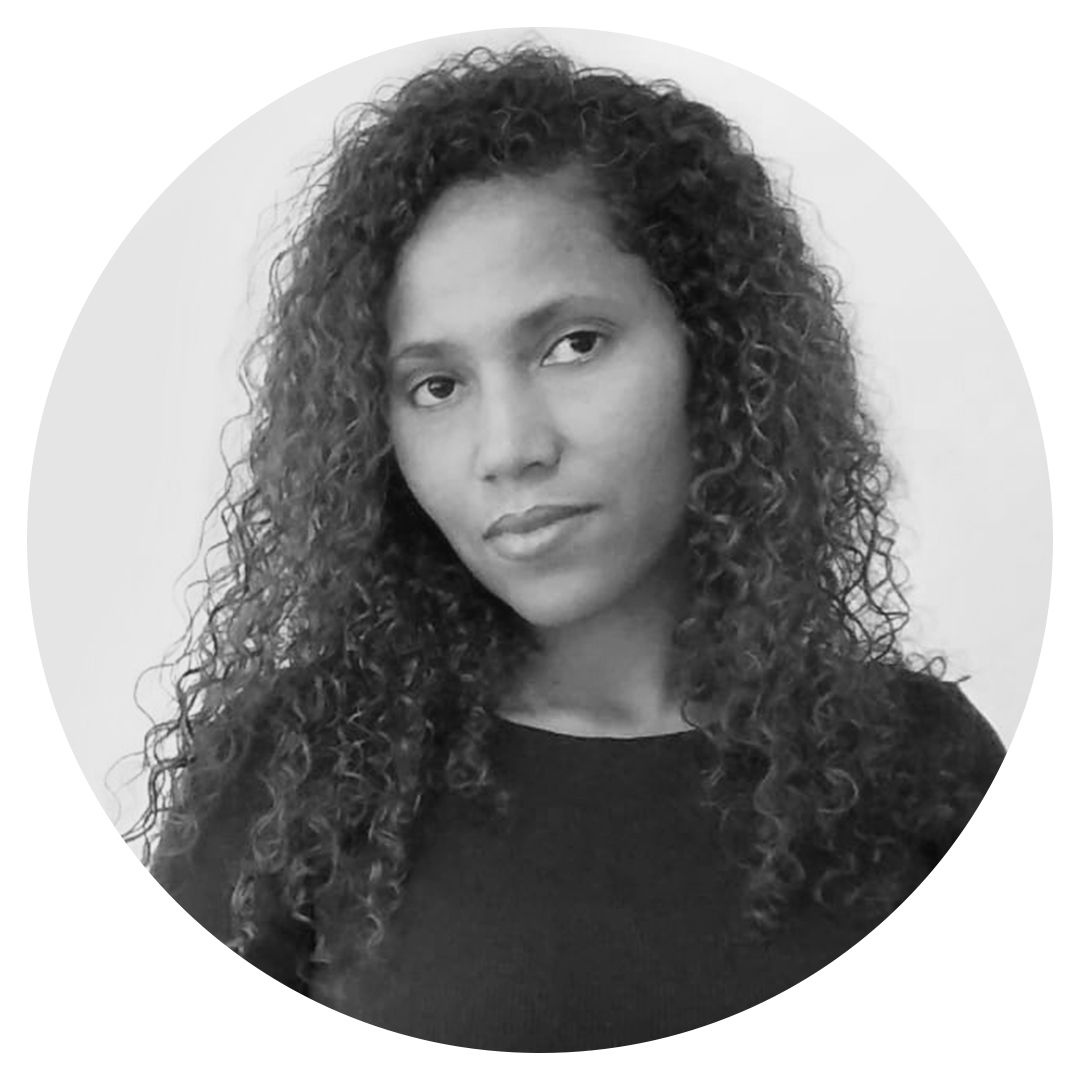
A United Nations resettlement program helped Yimer relocate to Montreal in 2017, and she now devotes herself to campaigning on behalf of African migrant women through her nonprofit organization, Egna Legna Besidet. The Black Lives Matter movement, she says, has struck a deep chord. “Millions of Black domestic workers are abused and exploited, hidden away in private homes far from their own countries. Their lives are treated as worthless.”
This has never been clearer than during the COVID-19 pandemic. As households in nations such as Lebanon and Saudi Arabia were hit financially, reports emerged of hundreds of African and Asian domestic workers being abandoned in the street by their employers. “The women were literally thrown away like garbage,” says Yimer. “They had no money, food, or shelter and nowhere to go.” One man in Lebanon briefly put his Nigerian maid up “for sale” on Facebook for $1,000. He was later arrested by Lebanese authorities on charges of violating antitrafficking laws.
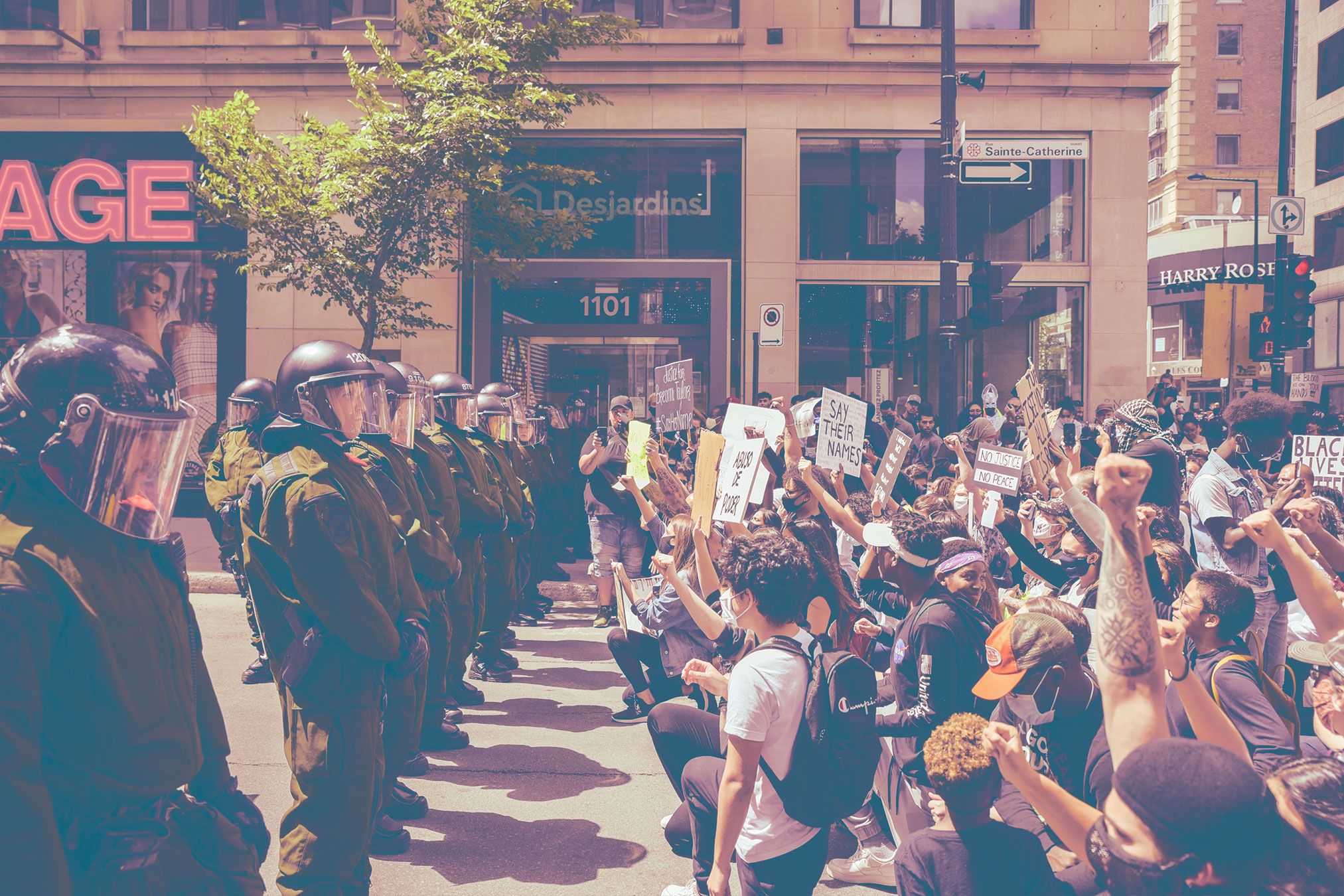
Police officers face off with protesters marching against police brutality and racism in Montreal, Canada, on June 7, 2020.
By September, Yimer had raised enough money to pay for 200 women to fly home to Ethiopia. But much more needs to be done, she says. The global protests over racism have finally helped to put a spotlight on the kafala system, as this government-approved slavery is called in Arabic-language countries in the Middle East. “Kafala is a sponsorship system that allows employers to treat foreign domestic workers like private property. The women are not protected by labor laws and are not even allowed to resign.”
Lebanon’s Labor Ministry estimates that an average of two domestic workers per week die in the country as a result of suicide or illness. Yimer believes the real figure is higher. “Many deaths caused by abuse or neglect are covered up,” she says. She will not stop, she says, until this brutal system is abolished and the lives of all migrant domestic workers are “truly respected.”
Growing up in an Aboriginal community in the Australian Outback, Lynda-June Coe says her teachers expected her to become one thing only: “another Black statistic.” Coe, 38, attended a mainly white school. “There was an assumption that I would be low-achieving, likely to experience early pregnancy, and would end up in trouble with the justice system,” says Coe, who is a member of the Wiradjuri tribe, one of Australia’s largest indigenous groups.
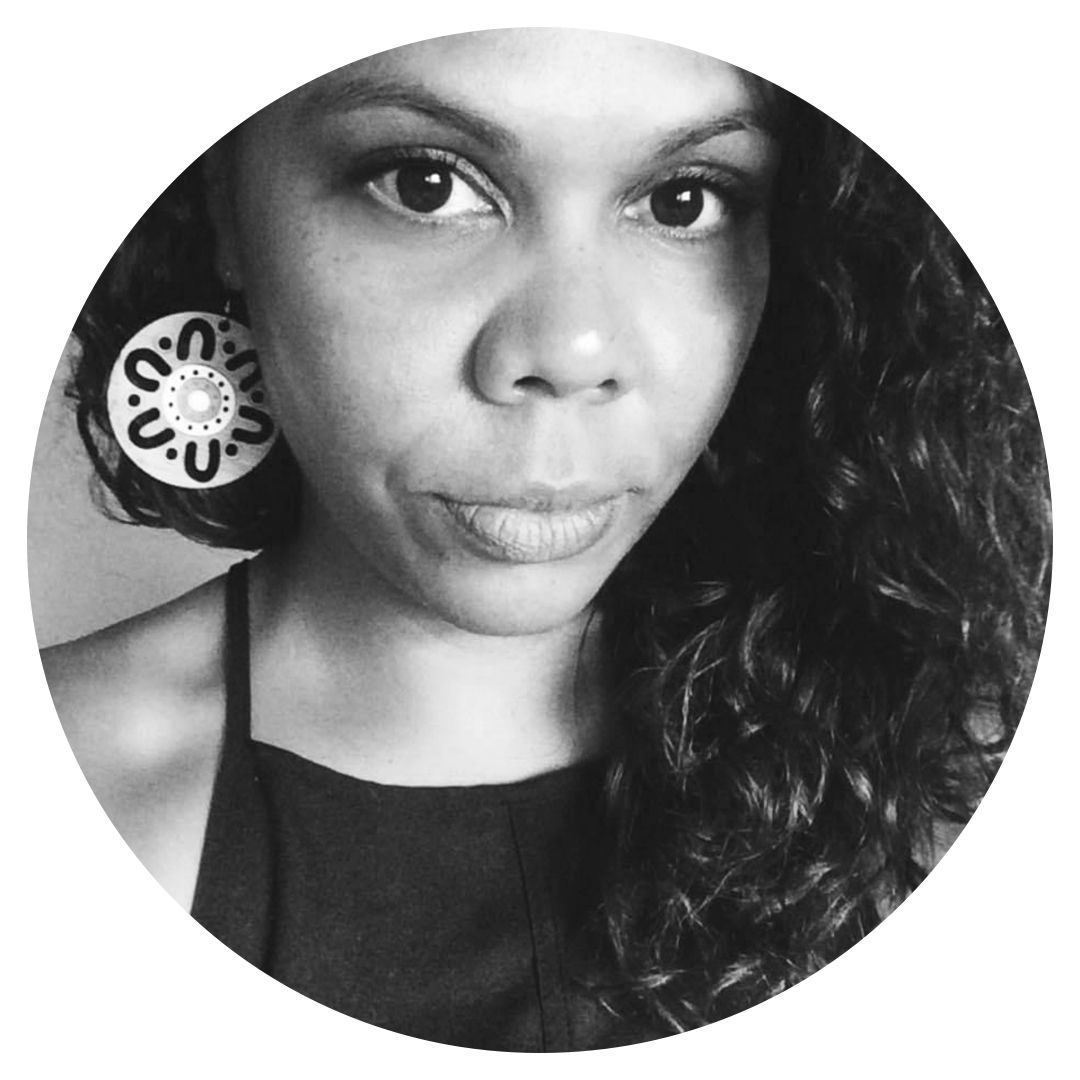
The stereotypes didn’t factor in that Coe is descended from a line of powerful warrior women. “The Wiradjuri are a matriarchal society, and our women have always fought for our rights,” says Coe, a Black activist and PhD student studying indigenous sovereignty at Macquarie University in New South Wales. Coe, who gives speeches and lobbies the authorities on Aboriginal rights, was on the front lines when Black Lives Matter protests erupted all over Australia in June. “The rallies turned out to be some of the [nation’s] largest in decades,” she says. “The issues of police brutality and Black oppression resonate as loudly here as they do in America.”
Australia, says Coe, has “a fundamental problem with murdering Black people.” Since 1991, when a Royal Commission looking into Aboriginal deaths in custody ordered strict records to be kept, 441 Black people have died in police or prison custody, five of them since this year’s June protests. “Indigenous Australians are 10 times more likely to die in state custody than non-indigenous people, yet there has never been a criminal conviction of anyone responsible,” says Coe. (At press time, in separate cases of fatal shootings of Black victims, two police officers have been charged with murder. One pleaded not guilty and the other awaits the outcome of pretrial hearings.)
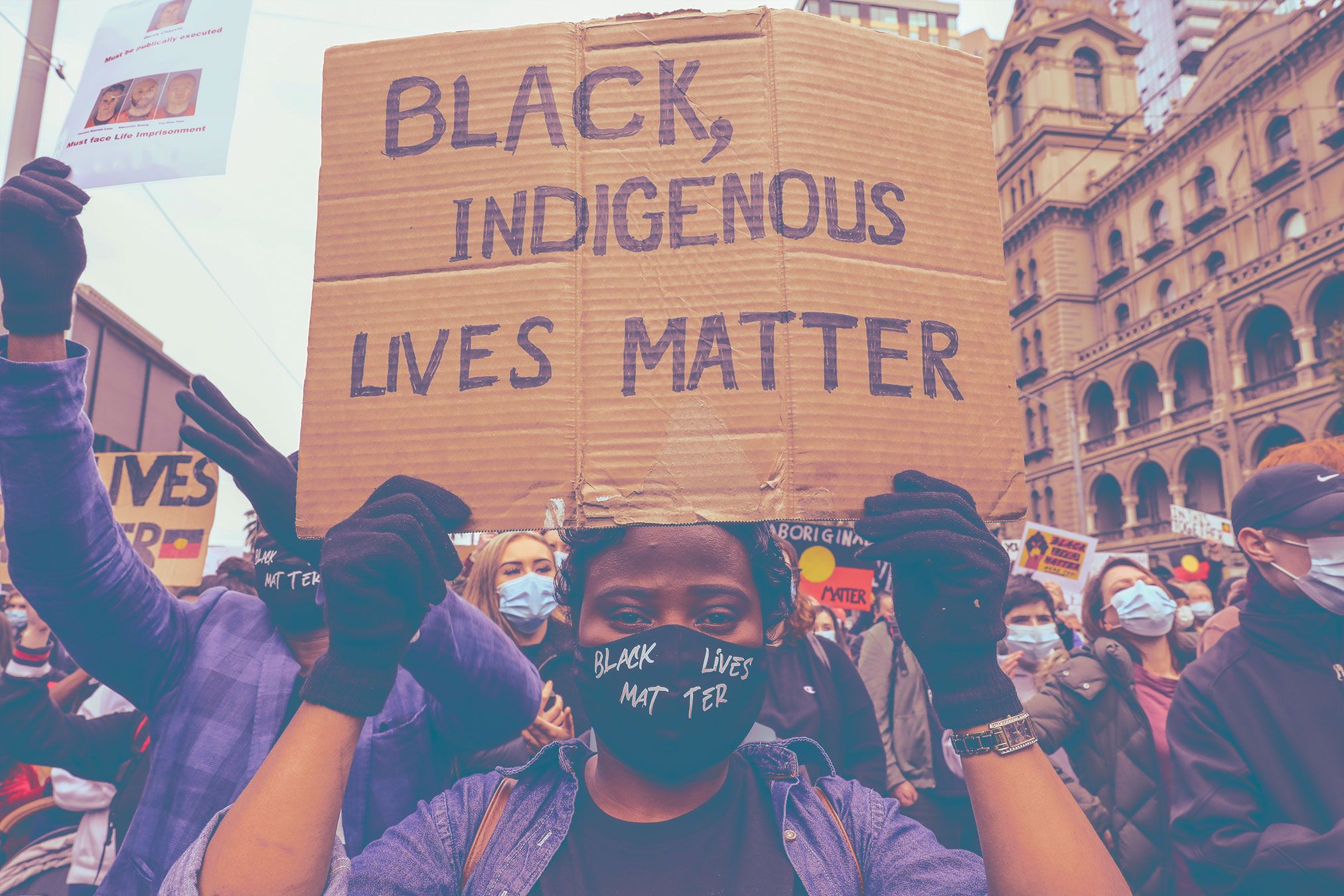
A group rallies against aboriginal deaths in police custody in Australia in Melbourne on June 6, 2020.
The disproportionate chance of dying in custody is part of the snowball effect of other injustices. The country’s 800,000 indigenous people make up 3 percent of the total population yet are 30 percent of all inmates in Australian jails. Among female prisoners, they are 36 percent. “Indigenous people are stopped by police, arrested, and convicted at much higher rates,” says Coe. “It’s all connected.” After her studies, Coe is considering a career in politics to fight for racial justice and carry on the tradition of her female ancestors. “My inner Wiradjuri warrior gives me a lot of strength,” she says. “I want to channel that in as many ways as I can.”
When she was a child, Thabi Myeni was standing in line with her grandmother at a post office in the city of Durban, South Africa, when a white woman came in and went straight to the head of the long queue. “While other Black people in the line mumbled about the unfairness of the situation, my grandmother loudly told the woman to wait her turn,” says Myeni, a writer, activist, and law student at the University of Johannesburg. “The woman quickly left. She hadn’t expected to be openly challenged.”
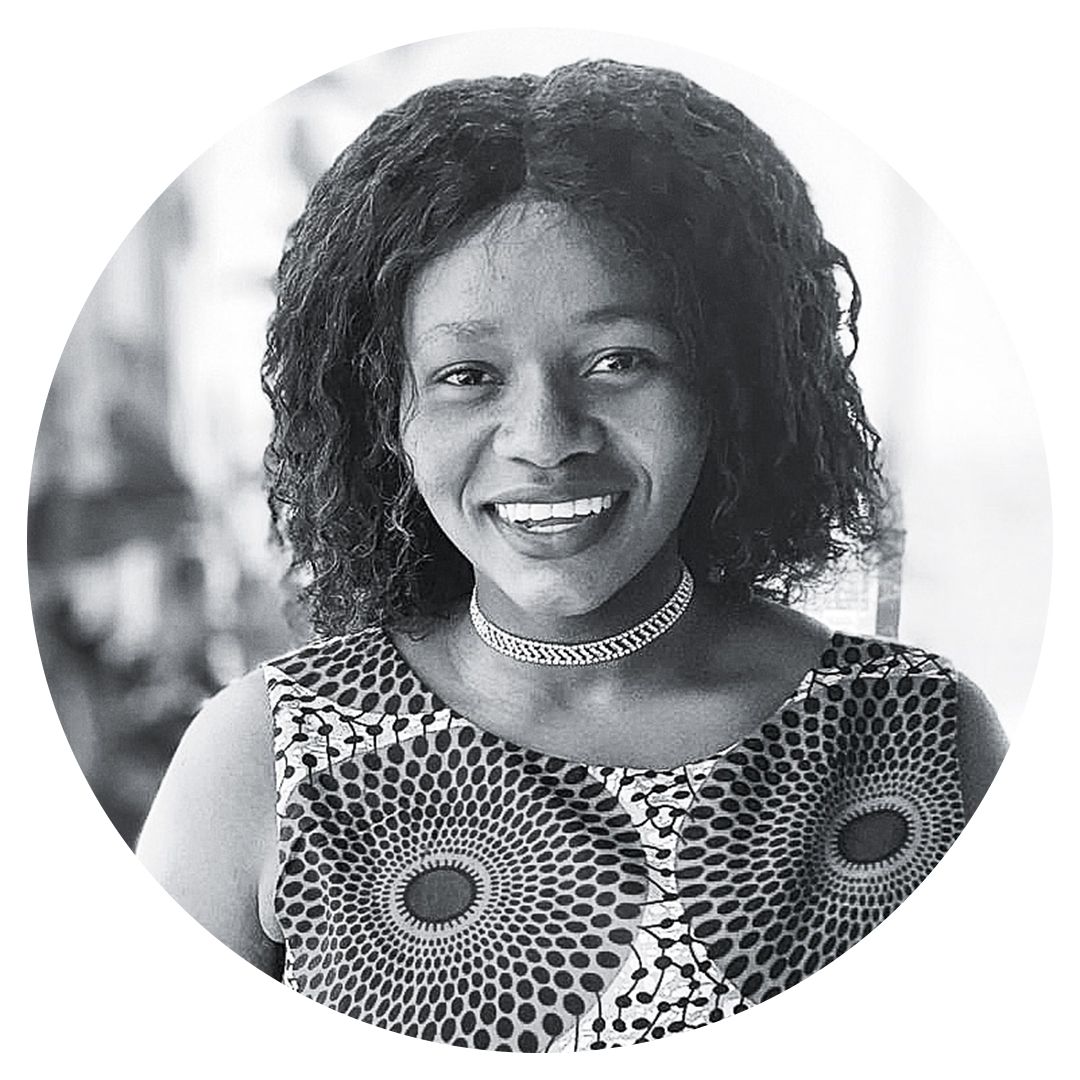
The incident was an early lesson in standing up for your rights, says Myeni, now 23. It was also one of her first realizations that the racist legacy of apartheid was still alive. “I belong to the first generation to grow up in what was supposed to be a new ‘rainbow nation,’ ” says Myeni, who was born in 1997, three years after apartheid in South Africa formally ended. Nelson Mandela was in power as the country’s first Black president. “It was supposed to be the dawn of a peaceful, racially harmonious society,” she says. “But the damage was far too deep to disappear overnight.”
In fact, nearly three decades on, many advantages enjoyed by the white minority, who make up around 8 percent of South Africa’s population of 57 million, have still not been dismantled. In a 2018 report, the World Bank described South Africa as “one of the world’s most unequal countries.” Black people’s salaries were 80 percent lower on average than those of white people, and more than 9 out of every 10 people living in poverty were
Black. Myeni says that many members of the “rainbow generation” have had enough. “My parents’ generation often didn’t complain about post-apartheid injustices because they didn’t want to rock the fragile new democracy, but more young people are developing a Black consciousness and demanding change,” she says. The Black Lives Matter protests in South Africa in June were in solidarity with the U.S., she says, but also to highlight recent Black South African deaths at the hands of police violence. In April, 40-year-old Johannesburg man Collins Khosa was having a glass of beer in his back yard. Witnesses say he was beaten to death by security forces after local officers accused him of violating COVID-19 lockdown rules. The same month, sex worker Robyn Montsumi was found hanged in a Cape Town police cell in suspicious circumstances. “Neither of these deaths made international headlines, but they are part of the same global problem that must be stopped,” Myeni says.
Myeni runs a campus organization called Womxn Without Chains that addresses her country’s sky-high rate of violence against women. In what South African president Cyril Ramaphosa described as “another pandemic raging in our country,” the rate of femicide is five times higher than the global average, with one woman murdered every four hours. After she finishes her degree, Myeni wants to help tackle BLM issues on a worldwide scale. Her grandmother’s lesson was just the beginning: “I knew I was going to be a fighter from a very young age.”
This story appears in the Winter 2020 issue of Marie Claire.
RELATED STORIES
